Black holes are regions where gravity is so strong that nothing, not even light, can escape them. They are formed from the remnants of massive stars that have collapsed under their gravity. Theoretically, if a black hole were to come close enough to Earth, its intense gravitational pull could have destructive effects. However, the chances of this happening are extremely low. Black holes follow the laws of gravity like other objects in space, and none of the known black holes are close enough to pose a threat to our planet.
Could a black hole destroy Earth?
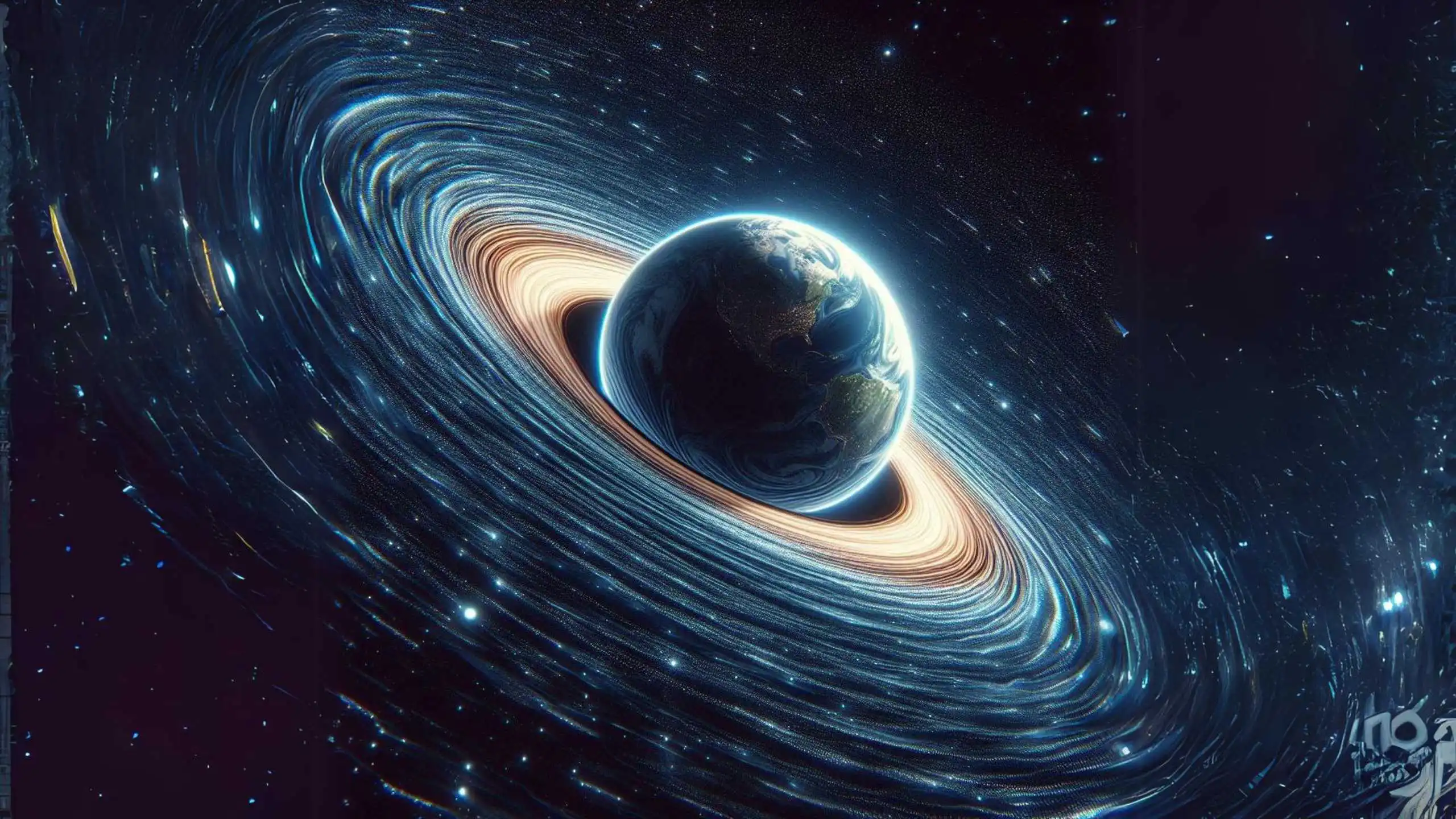
Theoretically, a black hole could pose a threat to Earth if it were to approach very near to our planet. However, the likelihood of this scenario is extremely low.
In reality, the nearest known black hole, which is named V616 Monocerotis, is about 3,000 light-years away from Earth. Even if it were to travel towards us, its gravitational effects would likely be negligible at such a distance.
Also read: Phoenix A*: The biggest Black Hole ever discovered
Additionally, black holes do not actively seek out and consume objects like planets. They only pose a threat if something were to come within their gravitational influence, causing it to be pulled into the black hole.
A black hole could only be a threat to Earth if it were very close, which is highly unlikely. The closest known black hole is too far away to affect our planet. Black holes don’t move around looking for planets to pull in. They only affect objects that get too close to them.
Can Black Holes Destroy Planets?
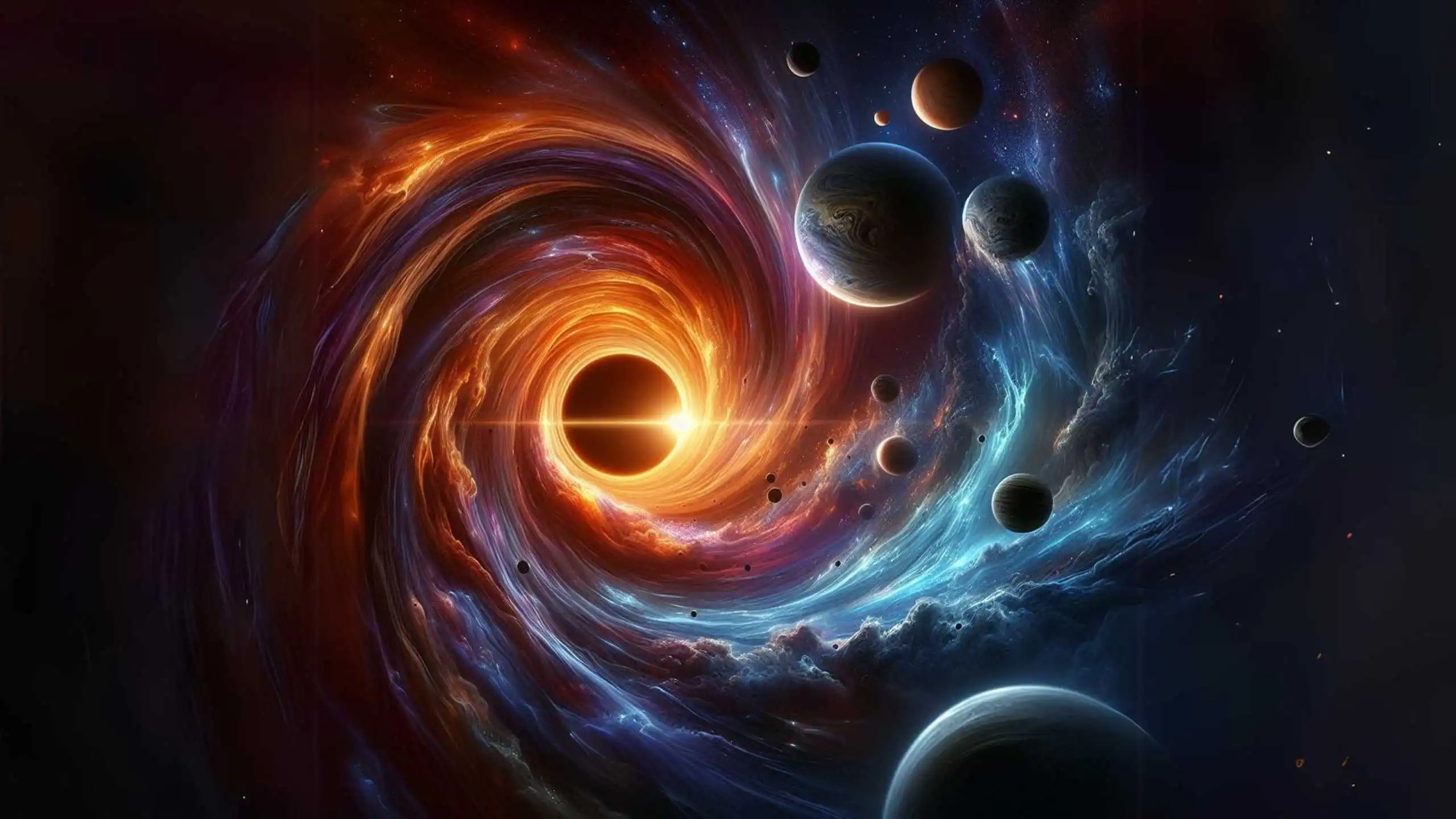
Yes, black holes have the potential to destroy planets through a process called “spaghettification”, where the intense gravitational pull of the black hole stretches and compresses anything that gets too close. If a planet were to approach a black hole, it would start to deform and elongate as it gets nearer. Eventually, the gravitational forces would rip the planet apart, turning it into a streak of debris that spirals into the black hole. This doesn’t happen often because planets and black holes need to be very close for this to occur.
🔬 Subscribe to SciMail
Get the latest science discoveries straight to your inbox!
Can a black hole destroy a galaxy?
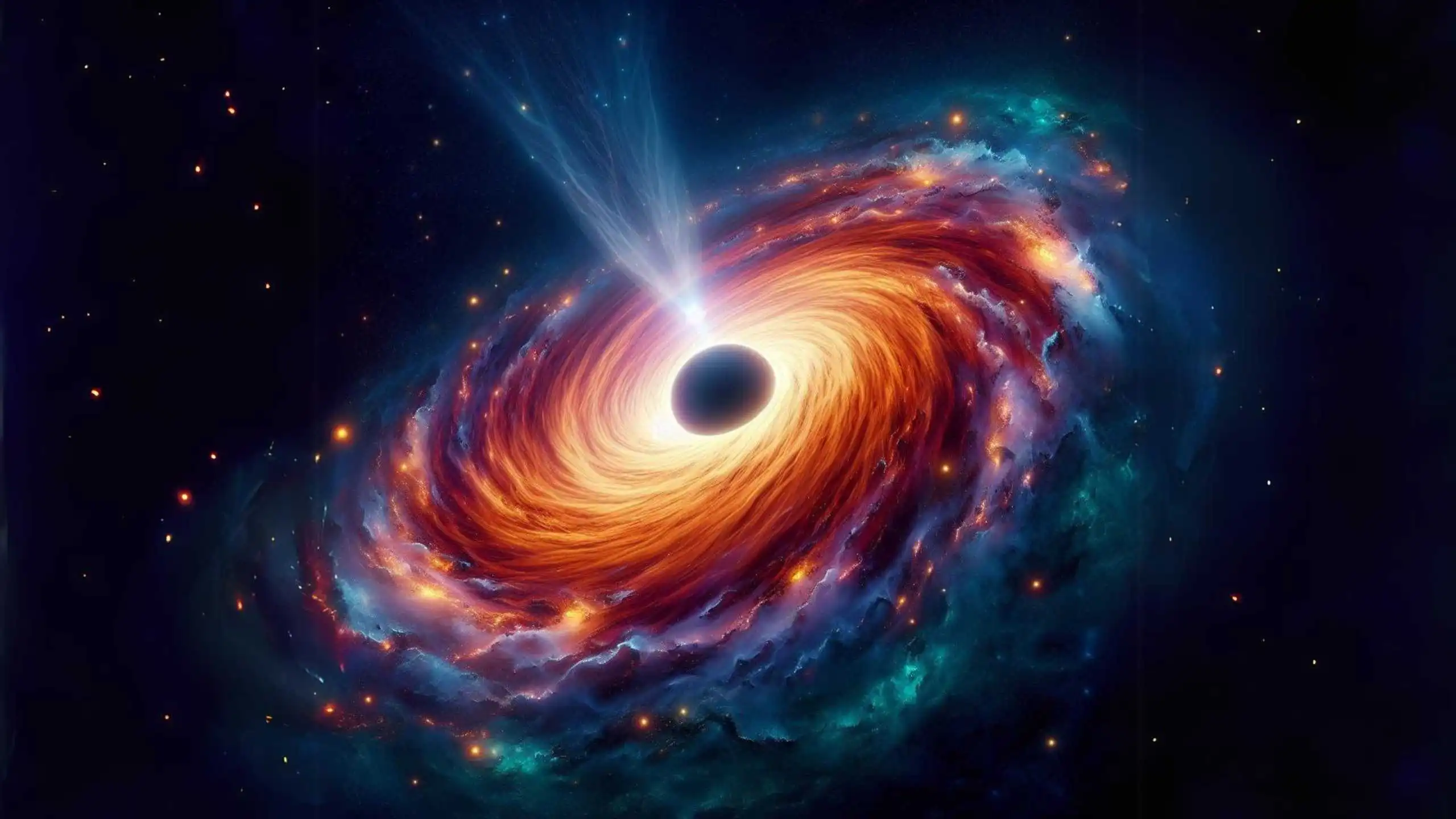
A black hole itself cannot destroy a galaxy. While supermassive black holes at the centers of galaxies have strong gravitational forces, they are not capable of consuming an entire galaxy but can affect star formation. When the matter falls into a black hole, it heats up and radiates energy before being swallowed. This radiation heats the surrounding gas, preventing it from cooling and collapsing to form new stars. In some cases, the energy can be so intense that it pushes gas out of the galaxy, stripping it of the material needed to create stars and grow. So, while a black hole won’t destroy a galaxy in the sense of shattering it, it can halt its ability to produce new stars, leading to a “dead” galaxy.
What If a Black Hole Came Close to Earth?
If a black hole came close to Earth, it would be a catastrophic event. The black hole’s intense gravity would start pulling on our planet, causing severe tidal forces. The side of Earth closest to the black hole would feel a stronger pull than the far side, stretching and deforming the planet as a process known as “spaghettification”. Eventually, Earth would be torn apart and absorbed by the black hole.
What Is the Nearest Black Hole to Earth?
Black holes are incredibly far away from Earth, and their distances can vary greatly. The nearest black hole is located in the constellation Ophiuchus Gaia BH1, which is about 1,560 light-years away. Hence, even the closest black hole is far away from Earth.
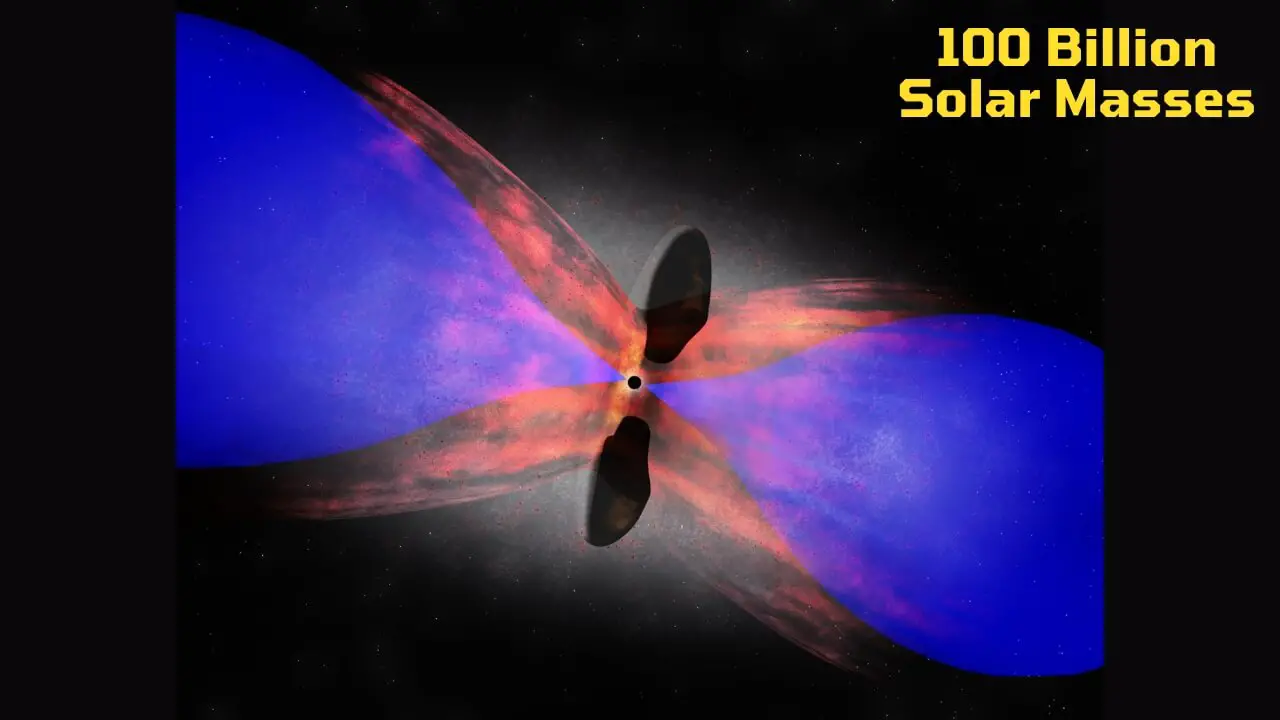
What will be the effects of the black hole on Earth?
If a black hole were to approach Earth, the effects would be drastic and destructive. The black hole’s powerful gravity would cause extreme tidal forces, stretching and distorting the planet.
The gravity of a black hole could also disrupt the orbits of the Moon and other satellites, potentially causing collisions. Moreover, the gravitational pull would affect Earth’s rotation and orbit around the Sun, leading to severe climate and geological changes. However, it’s very unlikely to happen because space is vast, and black holes are not common in the surrounding area of our solar system.
What Is NASA’s Position on the Threat of Black Holes to Earth?
NASA’s position on the threat of black holes to Earth is that it’s not a cause for concern. Black holes are incredibly far away from Earth, and the chances of one coming close enough to affect Earth are extremely low. NASA has stated that even the most massive black holes, which are much longer than the Sun and have strong gravitational forces, are not a threat to our planet which is situated 26,000 light-years from the Milky Way’s central black hole. The vast distance ensures that our planet remains unaffected by the black hole’s gravitational pull.

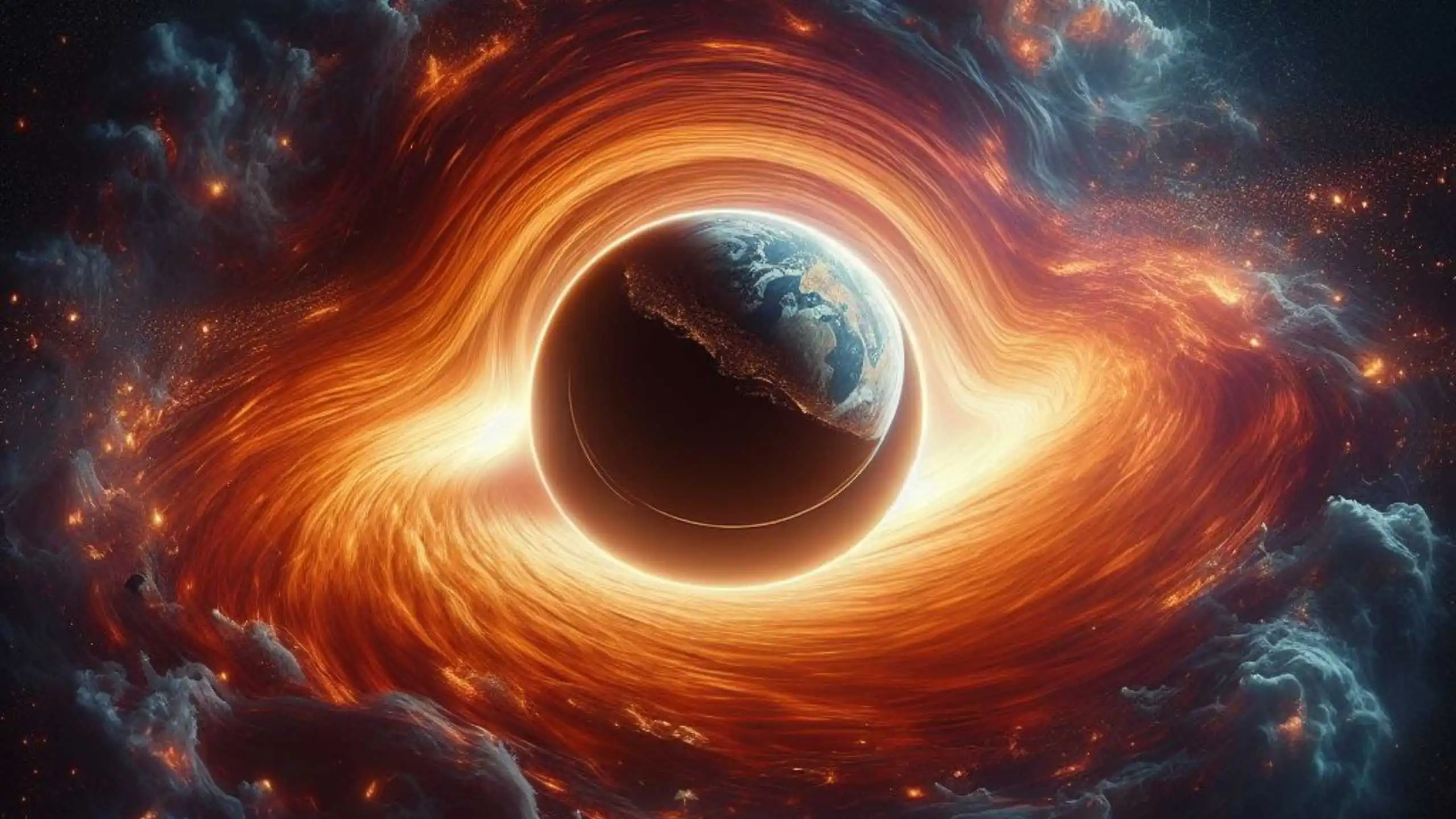
Leave a Reply